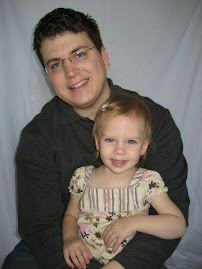Botched coup bid in Philippines ends
By Karen Lema and Raju Gopalakrishnan
MANILA (Reuters) - Philippine military and police teams stormed a luxury hotel in Manila on Thursday to end a short-lived coup attempt by a small group of soldiers and others who had called on the army to mutiny.
Government forces fired teargas into the lobby of the Manila Peninsula Hotel and used an armored personnel carrier (APC) to batter down its glass doors before storming in under cover of repeated bursts of fire in the air. There were no casualties.
The rebel soldiers, a senator and a handful of priests who had occupied the plush icon in the sprawling city of 12 million people surrendered and were arrested.
"We are going out for the sake of the safety of everybody," their leader Senator Antonio Trillanes earlier told reporters. "For your sake, because we will not live with our conscience if some of you get hurt or get killed in the crossfire. We cannot afford that."
It was the latest in a series of coup attempts to plague the Southeast Asian nation since dictator Ferdinand Marcos was ousted two decades ago.
Thursday's drama attracted hundreds of curious onlookers, but no one voiced any support for those inside the hotel, and there were no reports of unrest within the military.
Most of the guests had been evacuated before the assault, but over 100 people, including hotel staff and journalists, were caught in the midst of the action.
Trillanes, who led a failed mutiny in 2003 against President Gloria Macapagal Arroyo and was elected to the upper house in May, was hauled away in plastic wrist restraints.
Fellow mutineers, including around two dozen soldiers, a priest and a retired bishop, were also arrested along with scores of journalists.
Authorities said the journalists would be freed after identity checks.
"The wrong ways of some does not speak well for the nation or the armed forces and the police," Arroyo said in a brief television address. "Just like before, we will impose the full force of the law strictly and without favor."
LATEST COUP ATTEMPT
The drama started when Trillanes and some other soldiers walked out of their own trial for the 2003 mutiny, escorted by guards assigned to keep them from escaping.
They marched to the Peninsula Hotel in Manila's Makati financial district and took over the building, calling for the overthrow of Arroyo.
"We have been witness and victims of the kind of ruthlessness this administration is giving to the people. Now, like soldiers we are going to face this," Trillanes told reporters, when asked if he was ready to face fresh charges over this incident.
Journalists trying to do live phone-ins spluttered and covered their faces with handkerchiefs as the tear gas rose from the lobby to higher floors.
Government forces closed down virtually the entire Makati area, and surrounded the Peninsula with troops and trucks. Five armored personnel carriers were used in the assault on the hotel.
The rebel soldiers, who had earlier stopped people from leaving the hotel lobby as a 3 p.m. (0700 GMT) deadline for them to end their mutiny passed, later relented and let them go.
"I haven't been to bed yet," said Dave Anderson from Anchorage, Alaska, who had flown in overnight to Manila.
"They came and beat on my door and told me to leave by 3 p.m. They told me to take my bags, so here I am sitting in the lobby because I can't go out," he said before being allowed to leave.
Arroyo, deeply unpopular due to long-running corruption allegations, has survived at least two coup plots and three impeachment bids because the jaded middle class is sick of political instability, and she has a huge majority in the lower house.
She has also been buoyed by a strong economy.
The stock market and the peso currency pared earlier gains on the soldiers' actions but the main index still finished up 1.17 percent and has risen nearly 20 percent this year.
The peso is Asia's top performing currency, up 14.80 percent since the start of 2007.
"It hurts the whole country," said Vivian Yuchengco, a director of the Philippine Stock Exchange. "People like that should be thrown in jail."
The government imposed a curfew from midnight to 5 a.m. in Manila and two surrounding regions on Friday, a government holiday. Officials called it a precautionary measure.
Markets were unlikely to be much affected when they reopen on Monday, barring any further unrest, economic analysts said.
(Additional reporting by Rosemarie Francisco and Manny Mogato; Editing by Carmel Crimmins and Jerry Norton)
























































